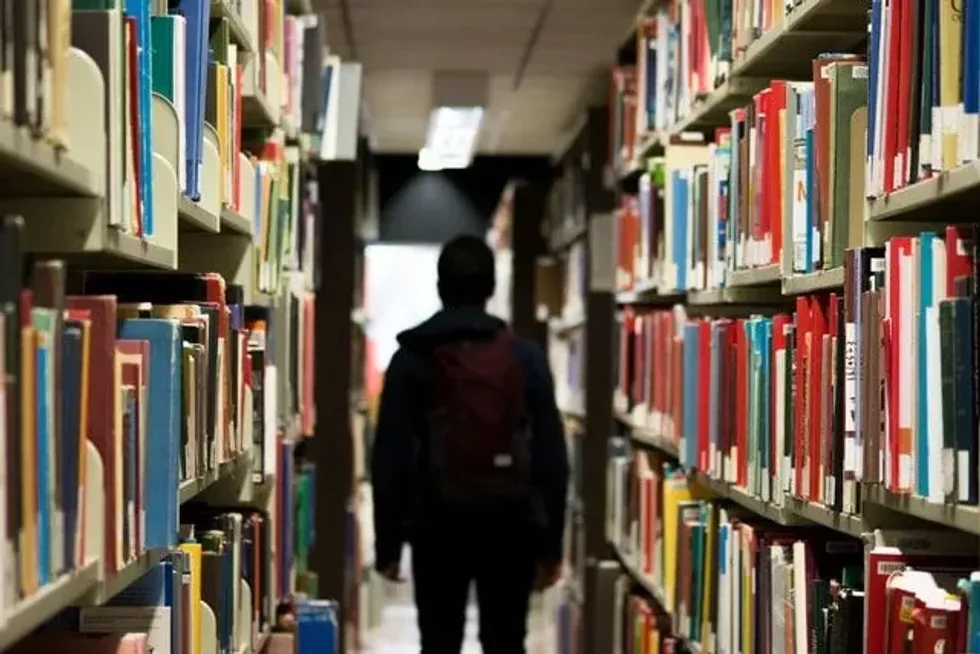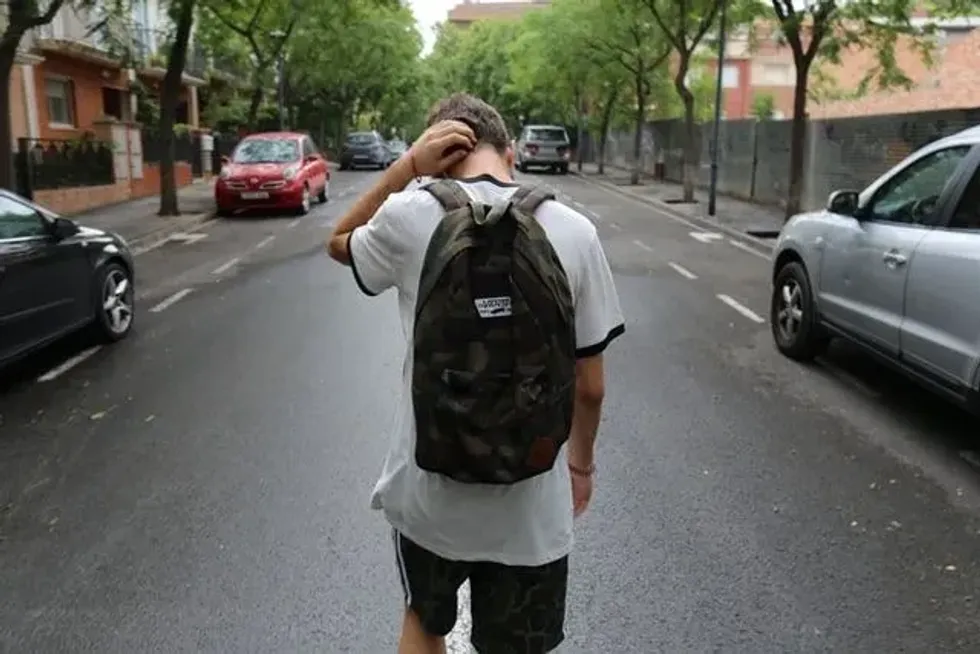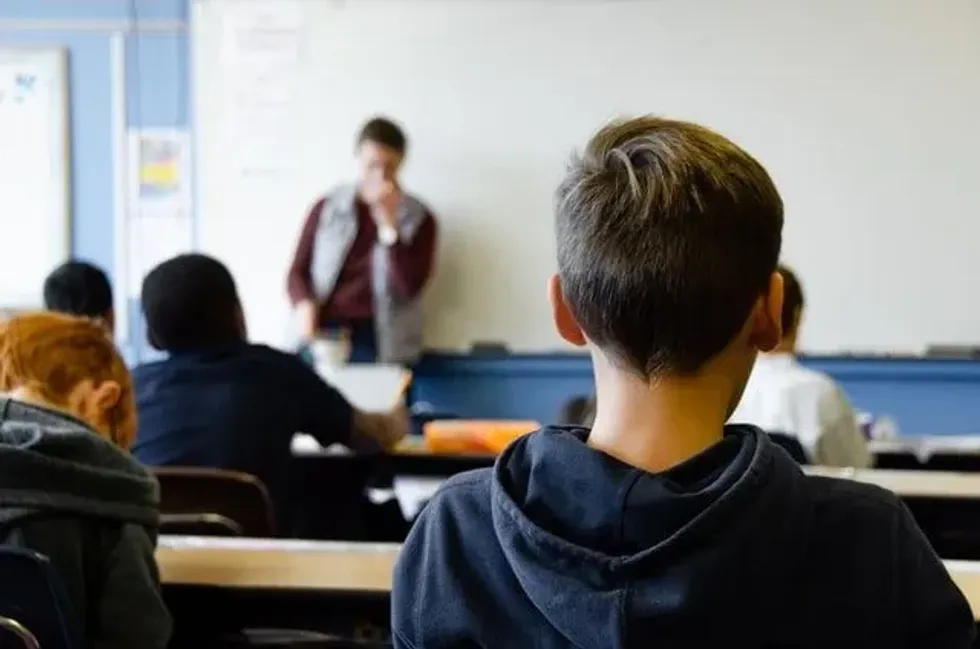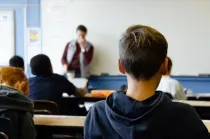What To Do If Your Child Is Expelled From School

School is a significant part of life for children and teens, Not only do they spend a large chunk of their weekdays there but it is also where they get an education, establish interests and hobbies, form lasting friendships and learn about the value of discipline and why manners matter.
So, when there is the chance of a student getting expelled from school, it can be an incredibly upsetting matter for the child, their parents, and school staff. There can be a worry that their education will be affected and their future opportunities stunted.
This, however, does not have the be the case so if you have been informed of your child breaking school rules or having issues with discipline which puts them at risk of expulsion, you can work together with your child, their school, and the principal to make sure they get the support they need as the disciplinary process takes place.
If you are concerned about what to do when your child is expelled from school, we hope this article can be of use. Below, we have outlined the expulsion process and included some useful information about the next steps to take should your child be permanently expelled from school.
What Is An Expulsion?
So that you can best support your child during the expulsion process or following an expulsion, it can first be beneficial to make sure you understand what it means for a school to expel a student and the reasons that can cause them to make that decision.
The Difference Between Suspension And Expulsion
Suspension and expulsion are different forms of disciplinary action and it is worth knowing how suspension and expulsion vary.
A school suspension is a less severe, temporary punishment that involves the removal of a student from their regular school setting, usually for a period of two weeks or less.
This could be an in-school suspension meaning that they are taken out of the classroom but still remain on school grounds to continue work related to their education or it could mean that they must leave and not return to school until the suspension period is over.
Expulsion refers to the process of a student being permanently removed from a school system. It is worth noting, however, that expulsion (being expelled) is seen as a last resort for students and is normally reserved for students who repeatedly violate school rules or have a single instance of extreme behavior.
Reasons For Expulsion
If your child has persistently bad behavior in school such as classroom disruption, rudeness, deliberate disobedience, bullying, or vandalism, their school can report to permanent exclusion if previous forms of discipline haven't worked and they have already been suspended from school more than once.
Single instance ways to get expelled from school include such things as being violent, being in possession of a dangerous weapon or firearm, threatening harm to others, and drug possession, use or sale.
It is worth knowing, however, that a student with disabilities cannot be expelled from school if their misbehavior is as a direct consequence of their disability.
Expulsion In Public Schools Vs. Private Schools
Generally speaking, public schools are duty-bound to provide education for those children living within their catchment area, and for each school district, their expulsion guidelines are usually based on federal and state laws. Under the federal Gun-Free Schools Act, for example, any student who carries a weapon into school must receive a minimum 12-month expulsion.
The exact nature of expulsion will vary from state to state and the rules of each school district, but in Maine, for instance, if a student gets expelled from a public school then they automatically become banned from every other public school.
If you are unsure about the exact terms of expulsion from a school in your area, then it is best to ask the school to direct you to information about this so that you can fully understand the consequences should your child be expelled.
Private schools do not have the same duty to educate local children and, therefore, their grounds for expulsion can differ and may include behavior that they feel does not align with their school values. These rules, however, should be available for parents to read in a handbook.
How To Prepare If You Think Your Child Is Getting Expelled
If your child has faced disciplinary action before or you know that they have had trouble with their behavior at school, you may already be concerned about the risk of expulsion. You may have had contact with the school principal previously or have recently learned of a serious incident and be anticipating a formal letter.
If you want to get ahead of the process and start gathering information and exploring available legal services then there are things you can do before a written notice arrives.
If Your Child Breaks A Serious Rule
Finding out your child has broken a serious rule is never something you want to hear but if you get contacted by the school principal or your kid admits their wrongdoing to you, the first thing to do is contact the school and ask whether the student risks suspension or expulsion and find out what this entails.
Then, sit down with your child and talk about what has happened and why.
The approach you take for this will depend on whether they are younger or in high school and the way you explain the consequences will also differ depending on their age. Start by asking for their account of what happened and ask them why they chose the actions they did.
It is important to talk to your child in a calm but firm way.
You can be honest and tell them you are upset or disappointed by their behavior but they likely feel bad about themselves already. Finally, explain the next steps that the school has outlined with regards to discipline over the matter.
What To Do Before The Letter Comes
Before the hearing letter arrives, it can be valuable to support your child in making a written account of the incident, including as much information as they can recall including where it took place, who was involved, and if there were any witnesses.
In addition, you can make some initial inquiries for legal services as students have a right to be represented by an attorney at the disciplinary hearing.
You might be able to access free legal services but if you can't, and paying for an attorney is not possible, you can still ask someone to advocate for your child at the hearing.
The Hearing
Before an expulsion can occur, a hearing must take place and should happen as soon as possible after a suspension.
You should receive written notice of a hearing at least five days before it takes place which states the time, date, and location of the hearing as well as which rule the school believes was broken and how the student broke it.
Receiving such correspondence can be daunting but read on to find out about how you can best prepare for a hearing and what to expect at the hearing itself.
How To Prepare For The Hearing
Once you have received the written notice of your child's expulsion hearing, you can finalize details with any legal services you have been in contact with to ensure they can represent your child as a student of the school.
Whilst you may already have a written account of what happened from the perspective of your child, it is also your right to get copies of any documents that the school plan to present at the hearing as well.
Use the time between receiving the formal notice and the hearing to gather as much evidence as you can to support your child's case for continuing their educational life at the school. This may be grade reports, achievement certificates, or sporting accolades.
You can also include details of anything you have put in place to help with their behavior such as counseling services you have employed and get character statements from those in the wider community such as neighbors or a pastor.
If for any reason, you cannot attend the hearing at the time and date specified, or you want more time to prepare, you can request a postponement but be aware, the school may ask your child to remain out of school until the amended hearing date.
What An Expulsion Hearing Entails
It is important that both you and your child attend the hearing as it will take place even if you are not there. During the hearing, both parties will have the opportunity to provide information, statements, and reports about the matter.
This can take the form of written documents that can be read as well as dialogue from both the student and the school and witness testimonies.
A witness can be someone who either saw the incident or someone who can act as a character reference, whether that be in defense of the student or an expulsion.
Once all the evidence has been presented, a decision-maker will have the final say as to whether the student will be expelled from the school or not. The decision-maker will be impartial and will either be someone not associated with the school, school district, or student or a panel of three or more members from The Board of Education.

What To Do With Your Child When They're Suspended
Although a less severe form of discipline than permanent expulsion, suspension from school is still upsetting and can make you worried about how your child's school year and their educational performance will be affected.
Find Out The Facts
Following an incident, you should be notified within 24 hours of a suspension. The next step is to contact the school and find out all the information they have in relation to the matter.
Before any suspension commences, the student should be informed of the reason for the chosen discipline and what rule they are believed to have broken. In addition, they should be made aware of how long the suspension is for.
As your child has the right to make up any assignments or examinations they have missed during a suspension, be sure to find out how this can be achieved.
Request A Meeting
Following this, it is advisable to request a face-to-face meeting with the school principal or staff member who put the suspension in place to give you the opportunity to ask any questions you may have and advocate for your child, explaining their side of the story.
What's more, you can also discuss options for alternative forms of discipline and request educational, social, or health support where they are available.
Emotional Fallout
Your child may have fears of being known as the kid who got expelled from school and this can add additional stress to what is already an extremely emotional situation. Following an expulsion, it isn't unusual for your child's emotions to shift but it is important that you help them work through them.
Firstly, they'll be the emotions related to what caused the expulsion itself. Anger, for instance, can cause children to lash out or be violent and it is imperative you get to the bottom of what has caused this anger. It could be caused by things going on at home, bullying, or internal confusion.
In addition, your child will also have negative feelings about being expelled and may worry about how other people view them. Take time to talk to your child about their feelings and if you believe they need more support, then seek the services of a counselor, behavior therapist, or other professional.

Continuing Education
After being expelled from school, you'll likely want to know how your child can continue with their education and what options there are for this. In very rare circumstances, you may find there are no physical placement learning options for the rest of a given school year but even if this is the case, there are other alternatives available.
Home Schooling
If it has been deemed a 'normal' school setting is no longer suitable for your child, homeschooling might be an option. Of course, this will depend on your family circumstances and whether there is an adult at home that can oversee the student's educational progress.
Some schools also offer public online schooling, so it is worth exploring this option if is available to them too.
Public Schools
As has already been mentioned, expelled students may not necessarily be able to attend other public schools in their school district if they have been expelled from one. This, however, is not the case in every state so it is worth contacting other local educational settings and finding out what options there are.
Private Schools
As independent educational settings, private schools command a fee for their students to attend. The cost will vary between schools but generally speaking, elementary school fees can be in excess of $10,000 a year and high school fees up to $15,000.
This cost can make private schooling unfeasible for many families so be sure to look at alternative options as well.
Special Education Settings
You may find that there are special education schools accessible for those students with persistent behavior problems or those who cannot attend other school settings. Often, these schools have a smaller student-to-teacher ratio and lesson structures that are carefully structured to the students.
Re-Entry Plans
Depending on the length of expulsion, your child may be able to return to their school within the same school year via a re-entry plan.
A re-entry plan is made in collaboration with you, your child, and the school and is a way of ensuring that the misbehavior that caused the expulsion will not occur again. This plan will often be reviewed with the student one month after they have returned to school, after three months, and so on.
A re-entry plan may also include discipline processes for the student and any additional support that is required for re-entry such as therapy or community service.
If you found this article helpful, then why not take a look at our helpful tips for your naughty child, or a discussion of parenting today's teens?
We Want Your Photos!
More for You
See All
Bachelor of Science specializing in Mass Communication.

Adekunle Olanrewaju JasonBachelor of Science specializing in Mass Communication.
Disclaimer
1) Kidadl is independent and to make our service free to you the reader we are supported by advertising. We hope you love our recommendations for products and services! What we suggest is selected independently by the Kidadl team. If you purchase using the Buy Now button we may earn a small commission. This does not influence our choices. Prices are correct and items are available at the time the article was published but we cannot guarantee that on the time of reading. Please note that Kidadl is a participant in the Amazon Services LLC Associates Program, an affiliate advertising program designed to provide a means for sites to earn advertising fees by advertising and linking to Amazon. We also link to other websites, but are not responsible for their content.
2) At Kidadl, we strive to recommend the very best activities and events. We will always aim to give you accurate information at the date of publication - however, information does change, so it’s important you do your own research, double-check and make the decision that is right for your family. We recognise that not all activities and ideas are appropriate for all children and families or in all circumstances. Our recommended activities are based on age but these are a guide. We recommend that these ideas are used as inspiration, that ideas are undertaken with appropriate adult supervision, and that each adult uses their own discretion and knowledge of their children to consider the safety and suitability. Kidadl cannot accept liability for the execution of these ideas, and parental supervision is advised at all times, as safety is paramount. Anyone using the information provided by Kidadl does so at their own risk and we can not accept liability if things go wrong.
3) Because we are an educational resource, we have quotes and facts about a range of historical and modern figures. We do not endorse the actions of or rhetoric of all the people included in these collections, but we think they are important for growing minds to learn about under the guidance of parents or guardians.







